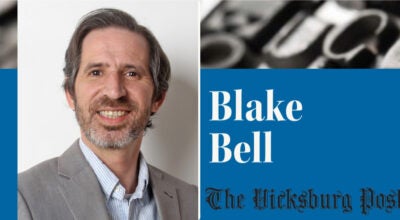Tourism is big business and worthy of investment
Published 12:28 am Sunday, July 2, 2017
Last week, I had the privilege of leading a delegation of Mississippi’s frontline tourism leaders to Washington D.C. to educate our congressional delegation on the economic importance of tourism. Our message is clear: Tourism doesn’t just happen. It requires strong research, creative marketing, strategic development, and targeted outreach.
Travel and tourism is a powerful engine of economic growth for communities large and small across the country. According to research from the U.S. Travel Association, in 2016 domestic and international visitors spent $990 billion, which generated $248 billion in payroll income and $158 billion in tax revenue for federal, state, and local governments. In Mississippi, tourism spending is more than $6 billion, which supports 86,600 jobs with a payroll of $1.9 billion and generated $1 billion in tax receipts.
Here in Vicksburg tourism accounts for 4,000 direct jobs (19.2 percent of work force) and over $203 million in tourism expenditures. Tourism provided over $22 million in state and local taxes. The Vicksburg Convention & Visitors Bureau has seen a 27 percent increase in hospitality tax collections in the past ten years.
With these impressive numbers, the proposals to target funding for key federal programs and state tourism offices that has been percolating through Congress and state legislatures this year startled all of us in the travel and tourism sector. Who would have thought Florida needed to be educated on the significant contribution tourism makes to the economy? And yet, the state legislature proposed a 67 percent cut to the Visit Florida budget.
In Washington, the president’s budget request calls for the end of the funding framework for Brand USA, the public-private partnership to promote travel to America from around the world. Funded through a combination of industry contributions and a $14 fee on international travelers entering the U.S. from visa waiver countries that are not subject to the much higher visa application fees, the program is cost-effective and its economic impact enormous.
In 2016, Brand USA’s marketing initiatives are responsible for welcoming more than one million incremental visitors to the U.S. and generating $6.6 billion in economic activity. Returning as much as $21.20 on every $1 spent on promotion, the program has supported nearly 45,000 incremental jobs per year, earning $1.9 billion in personal income.
It was a rude awakening but it made us realize that we cannot expect our elected representatives to just know the importance of these government programs to our communities — we have to detail it for them.
Travel and tourism is very good at selling our communities, but we aren’t always good at selling our own story. As Congress is barraged with issues and legislation it is a vital that we communicate with our elected officials the programs that are making a difference in our communities and our priorities for advancing economic growth, community development and job creation.
In sharing with our members of Congress and senators the stories of our successes and challenges, we documented the powerful impact of tourism on local communities and the critical role that federal agencies play in developing and supporting tourism initiatives.
These conversations helped us to see that while our elected officials are well aware of successful economic initiatives they don’t always make the connection to tourism or to federal programs. We have to speak up to make those connections for them.
During our trip, we laid out the case for continuing to fund Brand USA, for advancing federal budget priorities that support communities, and for strong investments in the nation’s transportation infrastructure. And we made the connection on how these federal programs are affecting local communities in their districts.
We recognize our elected officials are operating in a challenging political environment, and with tough budget decisions to be made it is critical that we make the case for supporting travel and tourism and the federal programs that are paying dividends to local communities in the form of economic health and growth.
We are confident if Congress makes decisions on the basis of what is good for local communities that tourism and its federal partners receive the attention and support it has earned in the federal budget.
Bill Seratt is the executive director of the Vicksburg Convention and Visitors Bureau. He also serves as the Mississippi Chairman of the Southeast Tourism Society’s Congressional Summit on Travel and Tourism.





